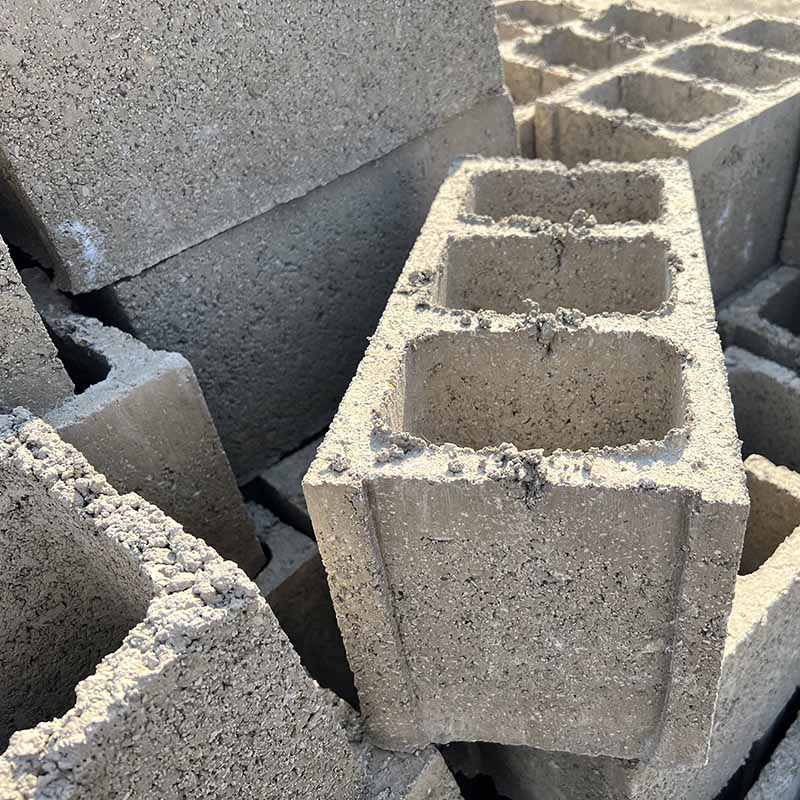
Image source:Aiwei block machine
Introduction
In recent years, the Chinese brick making machine industry has witnessed a significant transformation with the adoption of digital technologies. As the construction sector embraces Industry 4.0 concepts, manufacturers are leveraging digital innovations to enhance efficiency, improve productivity, and deliver superior quality products. This article explores the adoption of digital technologies in Chinese brick making machines and highlights the benefits and implications of this technological shift.
Automation and Robotics
Automation and robotics are at the forefront of the digital revolution in the brick making machine industry. Manufacturers are incorporating advanced robotics systems to automate various stages of the production process, from material handling to brick forming and stacking. These robotic systems are equipped with sensors, cameras, and intelligent algorithms that enable precise and efficient operations.
By automating repetitive tasks, manufacturers can achieve higher production rates, reduce labor costs, and improve product consistency. Furthermore, automation enhances workplace safety by minimizing human intervention in hazardous areas. Chinese brick making machine manufacturers are investing in research and development to optimize robotics systems and integrate them seamlessly into their production lines.
Internet of Things (IoT) and Connectivity
The adoption of the Internet of Things (IoT) has revolutionized the brick making machine industry. Machines are now equipped with sensors, actuators, and connectivity capabilities that enable real-time monitoring and control. Through IoT integration, manufacturers can collect and analyze data on machine performance, energy consumption, maintenance needs, and product quality.
This connectivity enables remote monitoring and diagnostics, predictive maintenance, and process optimization. Manufacturers can identify potential issues before they escalate, schedule maintenance proactively, and optimize machine settings to improve efficiency. Moreover, IoT integration facilitates data-driven decision-making, enabling manufacturers to enhance productivity, reduce downtime, and deliver higher-quality bricks.
Artificial Intelligence (AI) and Machine Learning
Artificial intelligence (AI) and machine learning technologies are being applied in Chinese brick making machines to optimize operations and enhance performance. AI algorithms can analyze large datasets to identify patterns, predict maintenance needs, and optimize production parameters. Machine learning models can continuously learn from data to make intelligent decisions and adapt to changing conditions.
For example, AI-powered vision systems can detect defects in bricks and reject them automatically, ensuring only high-quality bricks are produced. Machine learning algorithms can also optimize energy usage by adjusting kiln parameters based on external factors such as temperature and humidity. These AI and machine learning applications enhance productivity, reduce waste, and improve overall product quality.
Digital Twin Technology
Digital twin technology is gaining traction in the Chinese brick making machine industry. A digital twin is a virtual representation of a physical machine or process that allows real-time monitoring, simulation, and optimization. Manufacturers can create a digital twin of their brick making machines, which mirrors the machine’s behavior and performance in real-time.
By utilizing the digital twin, manufacturers can simulate different scenarios, test new processes, and optimize machine settings without disrupting actual production. This technology enables manufacturers to identify bottlenecks, optimize workflows, and make informed decisions to enhance efficiency and productivity.
Benefits and Implications of Digital Technologies Adoption
The adoption of digital technologies in Chinese brick making machines offers numerous benefits and implications for manufacturers and the industry as a whole.
Improved Efficiency and Productivity: Digital technologies automate repetitive tasks, optimize processes, and enable real-time monitoring. This leads to increased efficiency, reduced production time, and higher productivity levels.
Enhanced Quality Control: Digital technologies such as AI-powered vision systems and data analytics enable real-time quality control, ensuring that only bricks that meet specified standards are produced. This reduces waste and enhances customer satisfaction.
Cost Reduction: Automation and optimization through digital technologies result in reduced labor costs, lower energy consumption, and minimized material waste. Manufacturers can achieve cost savings and improve their competitiveness in the market.
Predictive Maintenance: IoT connectivity and data analytics enable predictive maintenance, where potential issues are detected in advance, and maintenance activities are scheduled proactively. This prevents unplanned downtime, reduces maintenance costs, and extends the lifespan of machines.
Safety and Workforce Well-being: Automation reduces the need for manual labor in hazardous areas, improving workplace safety. Digital technologies also streamline workflows, reducing physical strain on workers and enhancing their well-being.
Data-Driven Decision Making: Digital technologies generate vast amounts of data that can be analyzed to gain insights and make informed decisions. Manufacturers can optimize processes, identify areas for improvement, and respond quickly to market demands.
Competitiveness and Innovation: Embracing digital technologies enhances the competitiveness of Chinese brick making machine manufacturers by enabling them to deliver higher-quality products, optimize operations, and differentiate themselves in the market. It also fosters innovation and positions manufacturers as industry leaders.
Conclusion
The Chinese brick making machine industry is embracing digital technologies to improve efficiency, enhance quality control, and drive innovation. Automation, IoT connectivity, AI, machine learning, and digital twin technology are transforming traditional brick making processes into highly efficient, data-driven operations. These digital advancements offer numerous benefits, including improved productivity, reduced costs, enhanced quality control, and optimized maintenance.
As the industry continues to evolve, Chinese brick making machine manufacturers will need to invest in research and development, collaborate with technology partners, and upskill their workforce to fully leverage the potential of digital technologies. By embracing these technologies, manufacturers can stay competitive in the global market and contribute to the advancement of the brick making industry as a whole.
